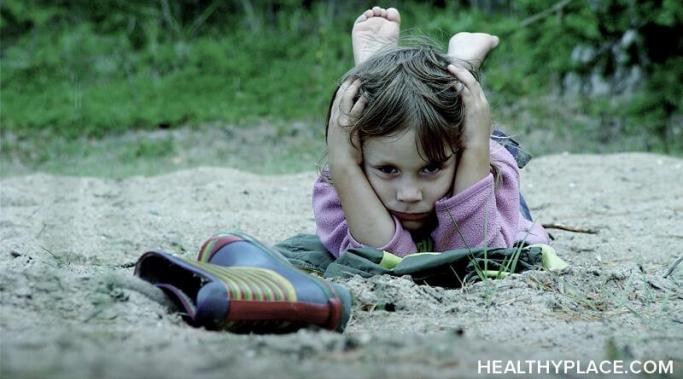The main symptom of disruptive mood dysregulation disorder (DMDD) is chronic irritability. "Irritability" is a vague word, though. It doesn't adequately describe how angry and mean our kids with DMDD can get or how demoralizing it feels. As parents, we work hard to raise decent human beings, then a DMDD outburst erupts and that decency seemingly flies out the door.
Behavior Issues
February is Teen Dating Violence Awareness Month (TDVAM), spotlighting the fact that every year "approximately 1.5 million high school students nationwide experience physical abuse from a dating partner," according to the Domestic Violence Awareness Project. Awareness of violence in teen and 20-something dating is an important key to turning these statistics around, especially in teens with mental illness, yet three out of four parents never talk to their children about domestic violence. As parents of mentally ill children, it is vital that we address this issue and speak to our teens about dating violence and what to do.
“Emotional contagion” occurs when we mirror the strong emotions of those around us whether those emotions are negative or positive. As a parent of a mentally ill child, it can be difficult not to "catch" our child’s negative emotions. By employing a few tools, parents can avoid the downward spiral of emotional contagion and help their melting down child find a way back to the positive.
Managing disruptive mood dysregulation disorder (DMDD) in the classroom isn't as simple as knowing how to prevent DMDD behaviors. Yet parents of children with DMDD are often expected to have immediate solutions for teachers and caregivers in our children's lives. Symptoms of DMDD are tough for even parents to handle, and immediate solutions don't exist, but there are doable small steps that can help manage DMDD in the classroom.
There are mental health benefits of pets for children with mental illness. Pets can be great friends and teachers to children with attention-deficit/hyperactivity disorder (ADHD), disruptive mood dysregulation disorder (DMDD), or other mental health concerns. Plenty of research exists backing up the helpfulness of having animals in therapy, school, or at home. My son's mental health benefits from the animals in his life.
My family experiences sibling abuse because my son has disruptive mood dysregulation disorder (DMDD). This means his emotional responses are violently out of proportion to the trigger. Worse, the trigger is often his sister. If he perceives her to get anything positive that he does not, Armageddon breaks out. I don't know how siblings without mental illness interact. All I know is that the fighting that goes along with sibling abuse is exhausting.
It's common for children with attention-deficit/hyperactivity disorder (ADHD) to steal from family members and friends. Knowing ADHD is probably behind a child's stealing behavior doesn't make it less frustrating, of course, nor less scary. After all, outside our homes, stealing is illegal. Parents of children with mental illnesses already worry enough about our kids ending up in the legal system. It's important, then, to figure out what might be causing our children with ADHD to steal.
You can sometimes predict that a mental health setback will happen, but still, when it happens, a mental health setback seems to come out of nowhere. I got a call from school staff this morning saying that my son was disrupting the class. He had been out of his seat, kicking chairs, and refusing to do work. In the background of the call, I could hear his teacher attempting multiplication lessons while the paraprofessional explained quietly that my son was now on the floor, unmovable and unresponsive to everybody. He was no longer allowed on Friday's field trip. The staff put the phone to my son's ear so I could try to talk him, but he hung up on me instead. After months of doing amazingly well at school and home, this was definitely a mental health setback.
Children with disruptive mood dysregulation disorder (DMDD) may go through a couple diagnoses, including oppositional defiance disorder (ODD), in the beginning. This is partly because DMDD is a newer disorder, but it also looks like other illnesses--especially ODD. My son's first providers diagnosed him with ODD, and other DMDD parents have told me their kids also started with that diagnosis. There is, however, a subtle difference between the two.
You can support a bipolar teen as she works on problem behaviors, but you must be patient. I didn't have any more patience when my daughter's new counselor asked me, “What’s the one behavior you would like to work on with your daughter?” I was stunned, one behavior? Did she have any idea how erratic and out-of-control my teen’s behavior was as her bipolar disorder cycled from frantic highs to screaming lows? I quickly listed 10 desires. But, no, the therapist insisted that I choose only one. My first reaction was to choose a new therapist to support my bipolar teen daughter.









